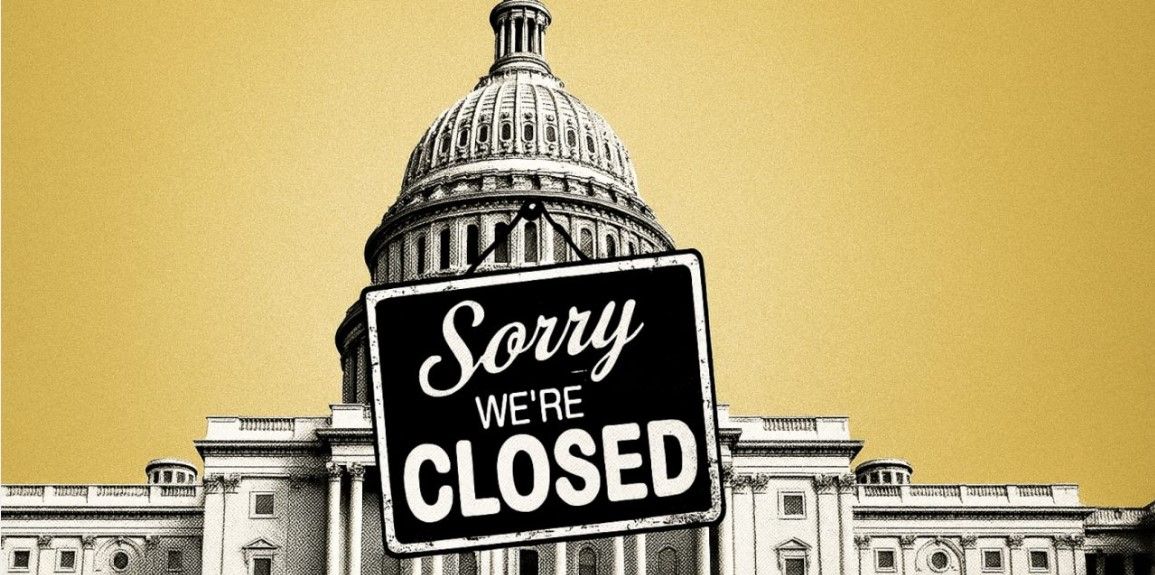What the Government Shutdown Means for Your Clients’ Closings
Check Out This Weeks Newsletter
The U.S. government shut down at midnight on October 1, and the fallout may ripple through the housing market.

According to HousingWire, the National Flood Insurance Program (NFIP) is unable to issue new policies, leaving as many as 1,400 home sales in limbo each day across 22,000 communities.
Fannie Mae and Freddie Mac quickly stepped in with temporary relief for lenders, but the shutdown’s impact is far-reaching, from delayed closings to stalled verifications.
The NFIP Freeze
The most immediate disruption is the NFIP lapse. Existing policies remain in force and can transfer to buyers at closing, but without authority to issue new coverage, transactions in flood-prone areas are at risk.
The National Association of Realtors (NAR) underscored the stakes. Shannon McGahn, NAR’s chief advocacy officer, said,
“According to NAR research, the NFIP supports roughly half a million home sales annually, generating 1 million jobs and contributing $70 billion to the U.S. economy.”
While some regulators may offer temporary waivers allowing closings without flood insurance, those measures leave lenders and homeowners exposed if a flood occurs before coverage is reinstated.
GSEs Step In: Fannie Mae and Freddie Mac
In response, Fannie Mae and Freddie Mac issued temporary policies to ease verification hurdles while maintaining risk safeguards:
- Fannie Mae’s Lender Letter LL-2025-03 and
- Freddie Mac’s Guide Bulletin 2025-E
Both documents are effective immediately and expire when federal operations resume.
Key measures include:
- Employment verification: Both GSEs waived certain VOE requirements if lenders document their attempts and confirm the shutdown prevented completion. Military borrowers may submit a Leave and Earnings Statement dated within 120 days of the note date.
- Pay stubs: The 30-day recency requirement is waived. Lenders may use the most recent YTD stub available before payroll interruptions.
- Reserves: If the shutdown continues beyond November 3, impacted borrowers must show at least two months of savings reserves or the reserves required by automated underwriting.
- IRS transcripts: Borrowers must still sign Form 4506-C, but lenders don’t need transcripts before closing. Instead, they have 90 days post-closing to obtain them.
Both agencies also reminded servicers that they can extend forbearance to borrowers whose income is disrupted, including those already in repayment or trial modification plans.
Other Housing Programs at Risk
The shutdown affects more than NFIP and GSE guidelines:
- USDA Rural Housing loans are suspended, delaying closings or shifting risk onto lenders.
- FHA operations continue with reduced staffing, slowing approvals and servicing.
- VA loans remain guaranteed, but appraisal and eligibility checks may face delays.
- IRS verifications could slow if contingency staffing is inadequate, though new automation is expected to help.
Spotlight on Washington, D.C.
Markets with high federal employment concentrations are particularly vulnerable. Census data shows about 14% of the D.C. metro workforce holds federal jobs, with that figure closer to one in five in D.C., Arlington, and Alexandria.
Lisa Sturtevant, chief economist at Bright MLS, noted that this shutdown is compounded by budget cuts, layoffs, and return-to-office mandates.
“Longer-term, the Washington D.C. area will always be the seat of the federal government and will also be a major metropolitan area economy, attracting new jobs and residents and the housing market will rebound.”
This shutdown is already straining key housing programs, from NFIP coverage to USDA loans. While Fannie Mae and Freddie Mac have offered temporary relief to keep conventional loans moving, uncertainty grows with each day the government remains closed.
Key Details:
- The government shutdown could stall mortgage approvals, suspend USDA loans, and delay FHA and VA processing.
- The National Flood Insurance Program (NFIP) lapse alone threatens 1,400 home sales per day, tied to 500,000 annual sales, 1 million jobs, and $70B in economic activity.
- Fannie Mae and Freddie Mac have eased verification rules, while Census data shows 14% of D.C. workers are federal employees, making the region especially vulnerable.
Sarah Lentz | Oct 3, 2025 | Housing Market
https://nowbam.com/what-the-government-shutdown-means-for-your-clients-closings/
“Just Ask Chuck”
@ChuckBarberini #ChuckBarberiniRealEstate
@ChuckBarberiniRealEstate #JustAskChuck
https://dot.cards/chuckbarberini
Categories
Recent Posts











